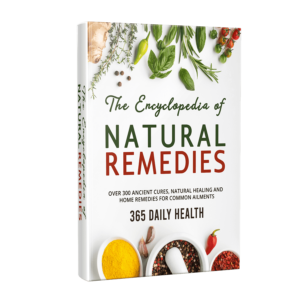Introduction
I have always been fascinated by home remedies and how they were used historically. Even more interesting, is that scientific studies now seem to support many of the uses of home remedies and explains what compounds account for their effectiveness. How did our ancestors know these plants worked and for what conditions?
Below are a few home remedies using garlic. Garlic and onions share many of the same compounds found in studies to be effective for various conditions.
If you want to know more about the scientific studies see my article here.
a. Garlic-infused Honey for Cough and Sore Throat:
Mix crushed garlic cloves with raw honey and let it infuse for a few hours. Take a spoonful of the mixture to soothe cough and relieve a sore throat. Garlic’s antimicrobial properties combined with honey’s soothing effect provide relief from respiratory ailments.
b. Garlic Poultice for Wounds and Infections:
Crush garlic cloves into a paste and apply it directly to wounds or infected areas. Secure with a clean cloth or bandage. Garlic’s natural antibiotic properties can help prevent bacterial growth and promote wound healing.
c. Garlic-infused Oil for Ear Infections:
Warm olive oil and add a crushed garlic clove. Allow the mixture to cool and strain. Use a dropper to put a few drops of the garlic-infused oil into the affected ear.
d. Garlic Tea for Digestive Issues:
Boil several cloves of crushed garlic in water for 10-15 minutes. Strain the mixture and drink the garlic tea to alleviate digestive problems like bloating, indigestion, and intestinal parasites. Garlic’s digestive benefits can help soothe the stomach and improve overall digestion.
e. Garlic Steam for Respiratory Congestion:
Add a few crushed garlic cloves to a pot of boiling water. Lean over the pot and cover your head with a towel to create a steam tent. Inhale the steam for a few minutes to help relieve congestion, sinusitis, and respiratory infections. The antibacterial properties of garlic can assist in clearing the respiratory passages.
f. Garlic Salve for Skin Infections:
Combine crushed garlic cloves with a carrier oil like coconut oil or olive oil. Heat the mixture gently and let it cool. Apply the garlic salve topically to skin infections, such as fungal infections, acne, or cold sores. Garlic’s antimicrobial properties may help combat the underlying causes of skin infections.
g. Garlic Mouthwash for Oral Health:
Mix crushed garlic cloves with warm water and use it as a mouthwash. Swish the garlic-infused water around your mouth for a minute or two before spitting it out. This can help fight oral bacteria, promote gum health, and alleviate bad breath.
h. Garlic Compress for Joint Pain:
Crush garlic cloves and mix them with a carrier oil like olive oil or sesame oil. Apply the mixture to the affected joints and cover with a warm compress. Leave it on for 15-20 minutes. Garlic’s anti-inflammatory properties may help reduce joint inflammation and provide relief from arthritis pain.
Disclaimer:
It’s important to note that while historical home remedies can offer potential benefits, individual results may vary. If you have any underlying health conditions or concerns, it’s advisable to consult with a healthcare professional before using garlic or any home remedies as a substitute for medical treatment.
Possible prescription Drug interactions:
While garlic is generally considered safe for most individuals when consumed in moderate amounts, it may interact with certain medications. Here are some examples of prescribed medications that can interact with garlic:
Anticoagulant/Antiplatelet Drugs:
Garlic may have anticoagulant properties and can potentially enhance the effects of medications like warfarin, aspirin, clopidogrel, or other blood-thinning medications. Combining garlic with these medications can increase the risk of bleeding. It is advisable to consult with a healthcare professional before using garlic if you are taking anticoagulant or antiplatelet drugs.
HIV Medications:
Garlic may interact with certain antiviral medications used to treat HIV, such as saquinavir. Garlic supplements may affect the metabolism of these medications and alter their effectiveness. If you are on HIV medications, it is essential to discuss the use of garlic with your healthcare provider.
Immunosuppressant Drugs:
Garlic has immune-stimulating properties, which may interfere with the action of immunosuppressant medications like cyclosporine or tacrolimus. These medications are often prescribed to prevent the rejection of transplanted organs. It is advisable to avoid the excessive use of garlic or garlic supplements if you are on immunosuppressant drugs, as it may impact their effectiveness.
Some Antibiotics:
Garlic may interact with certain antibiotics, particularly those from the quinolone class (e.g., ciprofloxacin, levofloxacin) or medications containing the active ingredient chloramphenicol. Garlic may interfere with the metabolism of these antibiotics, potentially reducing their effectiveness. Consult with your healthcare provider before using garlic if you are taking antibiotics.
It’s crucial to note that the interactions mentioned above are not an exhaustive list. Garlic may also interact with other medications, herbs, or supplements not mentioned here. Therefore, it is always advisable to consult with a healthcare professional or pharmacist if you have any concerns about potential interactions between garlic and your prescribed medications. They can provide personalized advice based on your specific medical history and medications.
For more on home remedies click here.
For info on onion home remedies click here.

